AI in Ecommerce: 5 Uses You Need to Know
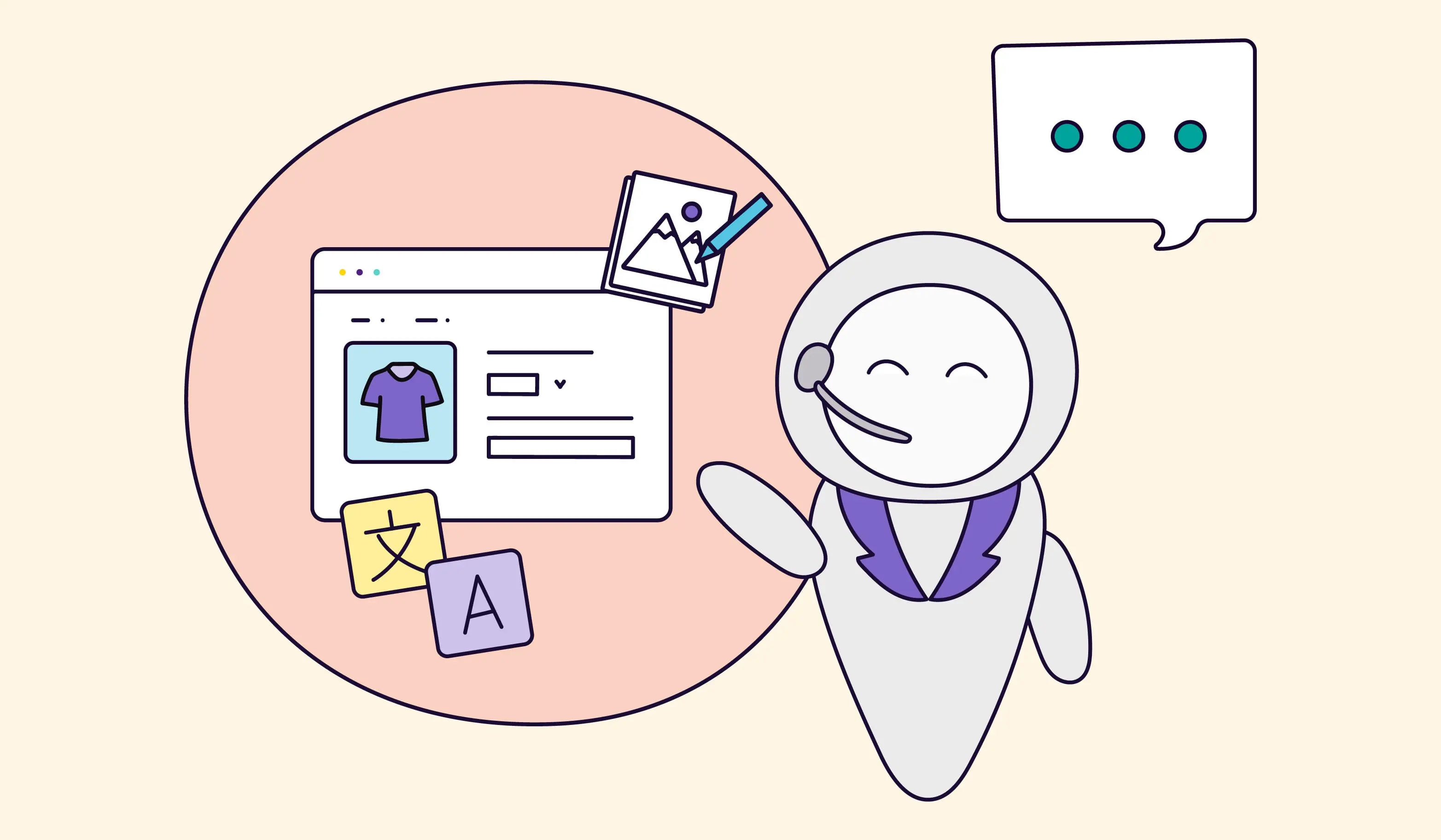
Keep the good stuff coming
Subscribe to our blog newsletter and get monthly content that helps you manage product data smarter.
No spam. Just real value.
In case you haven’t noticed, artificial intelligence is on the rise. Recently, we’ve seen an explosion in the number of use cases in practically every industry around the world—AI has generated everything from architecture to artwork to Adele songs. But what about AI and ecommerce? Could this new technology actually help you sell more online in the long run, or is it just another passing fad?
Today we’re going to look at a variety of ways people are already using AI to improve their online selling experience. And we’ll even give you some advice on how to make the best use of the AI options out there.
Let’s get started with some of our favorite AI solutions for ecommerce.
1. AI-driven ecommerce advertising
One of the many AI applications in ecommerce is for marketing and advertising purposes, and in particular for improving personalization and targeting. You may not have time to come up with a personalized advertising campaign for each and every one of your customers (and frankly, we’d be worried if you did), but AI certainly does. AI now has the ability to look at past customer communication from your client base in general and on an individual client level, and then create marketing copy using language personalized to each and every customer. This leads to what some companies are calling “hyper-personalization”, which has been found to be way more engaging than regular copy and, as a result, way more likely to get customers to act.
Use this functionality wisely and it could massively increase the influence of your campaigns—just bear in mind that if all of your competitors start doing the same then consumers might start to catch on. If that happens, the effectiveness of this tool is likely to wear off pretty quickly, as consumers tend to get put off by content they can tell is automated. Best to get in while you can.
2. Personalized AI shopping recommendations
Continuing promptly along the personalization path, another fantastic example of AI-powered ecommerce is the ability to recommend products to your past and present customers based on their purchase history. There’s nothing particularly novel about this concept. After all, Amazon has been at it for years, with personalized product recommendations estimated to make up more than 35% of their purchases. But what is worth noting is just how much more effective it’s getting thanks to AI, and the fact that sites like Amazon are now making this function available to anyone willing to pay for it.
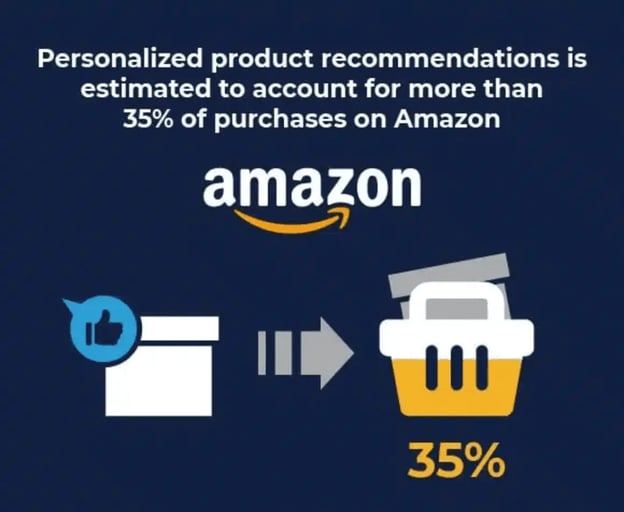
Considering the fact that 49% of consumers admitted to purchasing a product they wouldn't have bought otherwise thanks to a personalized recommendation, the value of effective product recommendations really can’t be overlooked. If you don’t already have tech in place for high-quality recommendations, it may be worth looking into a few external options, weighing up their pricing plans, and then trying to find the one that’s right for you.
3. AI product listings for online selling
Ask any online retailer about one of their biggest pain points when selling on multiple channels and they’re bound to mention product descriptions. While it may not seem too time-consuming to have to write a few lines or list some bullet points highlighting the benefits of each of your products, when you’re selling a lot of similar products or the same products on a lot of different platforms, it can end up taking a ridiculous amount of time. Especially if you consider that each description has to be unique for SEO purposes.
With that in mind, one of the most significant benefits of artificial intelligence in ecommerce has to be the recent advent of AI-powered product descriptions. Just manually plugging prompts into a site like ChatGPT is at least 5 times faster than using a human copywriter, according to our own experiment. And that was even when ChatGPT was having a particularly slow day due to its recent spike in popularity.
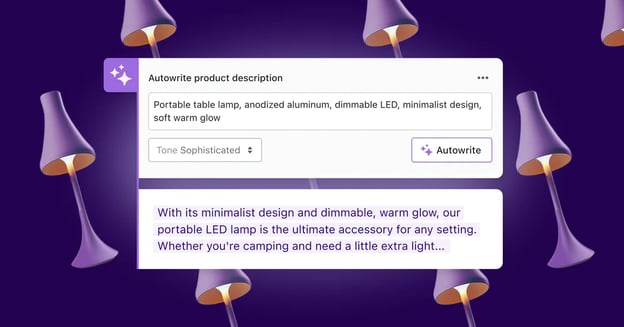
Sites like Shopify have already started integrating this function into their platforms directly, which is definitely a massive time-saver, but we do have to mention that we have noticed that the descriptions generated by AI do still tend to come across as a tad impersonal. As technology continues to evolve, more businesses are testing ways to use AI tools for content. The key is humanizing AI: making these tools more adaptable and customer-focused, so the content they produce actually feels engaging and relatable. For that reason, what we recommend is using them as a quick and easy starting point that you can use to get your products online pronto, and that you can then build on at your leisure over time, without the time pressure of trying to get your products to market before it’s too late. We’d also recommend using a PIM system to keep track of all your different descriptions once you’ve got them.
4. AI-generated translations
Another immensely practical way people are using AI and automation in ecommerce: Automatic translations that are actually usable in a professional context. Yes, long gone are the days of your new “fall line” appearing to overseas customers as a “dropped cable,” or Google Translate deciding that your new serum “hydrates elevators and enterprises”. Thanks to the careful application of machine learning, AI translation is getting good, and it’s now worth considering as a speedy way to make your product information available to customers who speak other languages.

This is especially true if you use a company like Reverso that can translate documents directly—that way, so long as you can get your product information in the form of a CSV, XML, or a similar file, then you’ve got an incredibly fast way to translate hundreds, if not thousands, of product descriptions and other data fields. That said, this technology is still not 100% perfect, so of course you’re going to want to double-check the translations it produces if you can.
5. AI ecommerce chatbots
Finally, one more increasingly common use of artificial intelligence in online shopping is that of AI chatbots. Chances are, when you think of AI these days, bots like ChatGPT, Google Bard, and the like are the first thing that comes to mind, and so naturally a lot of companies have already started to take advantage of this technology for customer service purposes.
In fact, 23% of customer service companies are already using them, with more than 300,000 chatbots being used on Facebook Messenger alone, and the value of the global chatbot industry is predicted to reach nearly $1 billion by 2024. And I know what you’re thinking—surely not everyone likes dealing with chatbots, right? That may be true, but according to a recent survey, 62% of consumers would rather use an online chatbot than wait for a human to pick up the phone. And of those who’d recently had a conversation with one, nine out of ten were either satisfied or neutral about the experience.
As ever, though, we do have some words of caution about this use case too. Naturally, companies should investigate just which of the chatbot companies out there at the moment provides the best AI for ecommerce, and for their business in particular. There have also recently been some rather unnerving cases of bots saying some rather unsettling things—not quite the AI-powered shopping experience you may be after.
Companies are taking steps to avoid any more unhinged interactions like this though, so no need to worry too much. On that note, you might want to see if the AI bot you're interested in works well with the rest of your ecommerce tech stack. (And if you haven’t quite figured out what your ecommerce tech stack should look like, we recommend you check out our free ebook here.)
The future of artificial intelligence in ecommerce
So what’s the final verdict on all this new and exciting technology? Well, as you might have noticed, there’s a common theme in all of our recommendations: Caution. Yes, these new applications of AI have some fantastic potential, and chances are they will become more and more prevalent across the board in the years to come, but we are still in the early stages.
With great power comes great responsibility, which means an even greater chance of messing everything up if you’re not careful—so tread lightly if and when you first start using these tools. That being said, history tends to favor early adopters of new and potent tech like this, so start using AI effectively now and you could well find yourself dominating your market in the end.
AI-generated FAQs
To test AI even more, we asked ChatGPT to generate some handy FAQs based on this article—here’s what it had to suggest:
How exactly does AI improve personalized advertising in ecommerce?
AI improves personalized advertising in ecommerce by analyzing vast amounts of customer data to identify patterns and predict customer behavior. By understanding customers' interests, preferences, and behaviors, AI can recommend products that are most relevant to their needs and personalize the shopping experience. This results in higher conversion rates and increased customer satisfaction.
What are some of the best tools for AI-powered personalized product recommendations?
Some of the best tools for AI-powered personalized product recommendations include Amazon Personalize, Dynamic Yield, Adobe Target, and Qubit. These tools use machine learning algorithms to analyze customer data and provide personalized product recommendations to each individual customer.
How accurate are the product descriptions generated by AI, and how can I make sure they don't come across as impersonal?
The accuracy of product descriptions generated by AI can vary depending on the quality of the data used to train the machine learning models. However, it's important to note that AI-generated descriptions should be seen as a starting point and should be edited and personalized by humans to avoid sounding impersonal. To ensure accuracy, it's important to regularly review and update the product descriptions, and test them with a sample of customers to gauge their effectiveness.
What are some of the best AI translation tools for ecommerce, and how do I make sure the translations are accurate?
Some of the best AI translation tools for ecommerce include Google Translate, DeepL, and SDL. To ensure accuracy, it's important to use multiple translation tools and compare their results. Additionally, it's important to have a human translator review the translations to ensure that they are grammatically correct and convey the intended meaning.
What are some of the key benefits of using AI chatbots in ecommerce, and how can I make sure they're effective in improving customer service?
The key benefits of using AI chatbots in ecommerce include 24/7 availability, faster response times, and improved customer service. To make sure they're effective, it's important to ensure that the chatbots are trained to understand customer inquiries and provide accurate and helpful responses. Regular testing and optimization can also help improve the effectiveness of AI chatbots in ecommerce.
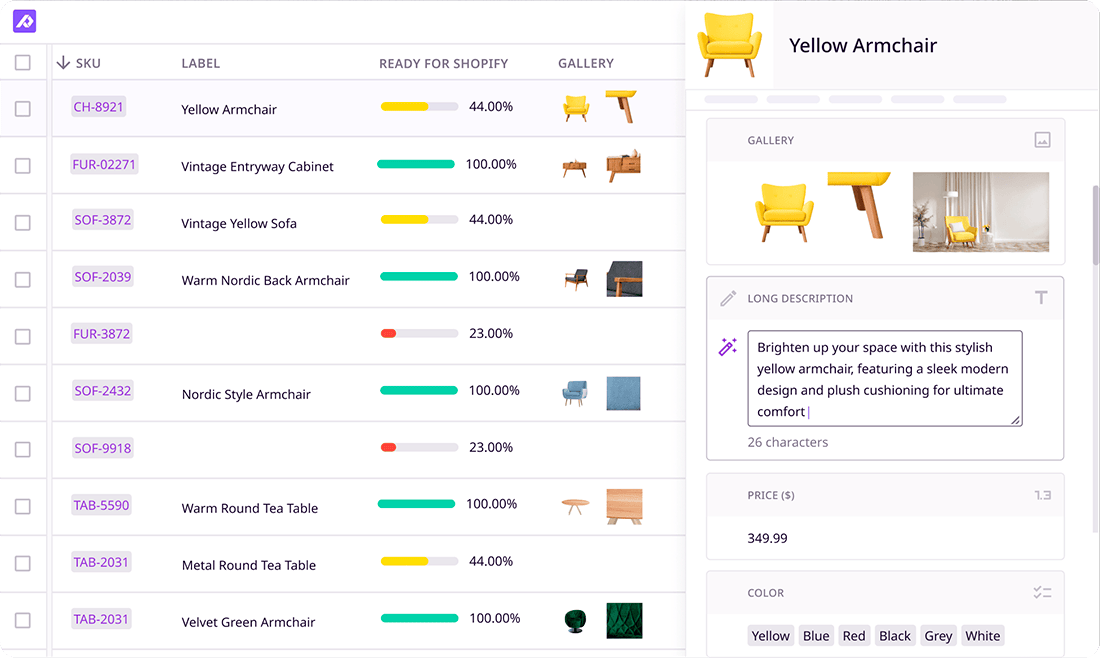
What if your product data actually worked for you?
We’ll show you how Plytix helps you stop fixing data—and start using it.
Related posts
Keep the good stuff coming
Subscribe to our blog newsletter and get monthly content that helps you manage product data smarter.
No spam. Just real value.


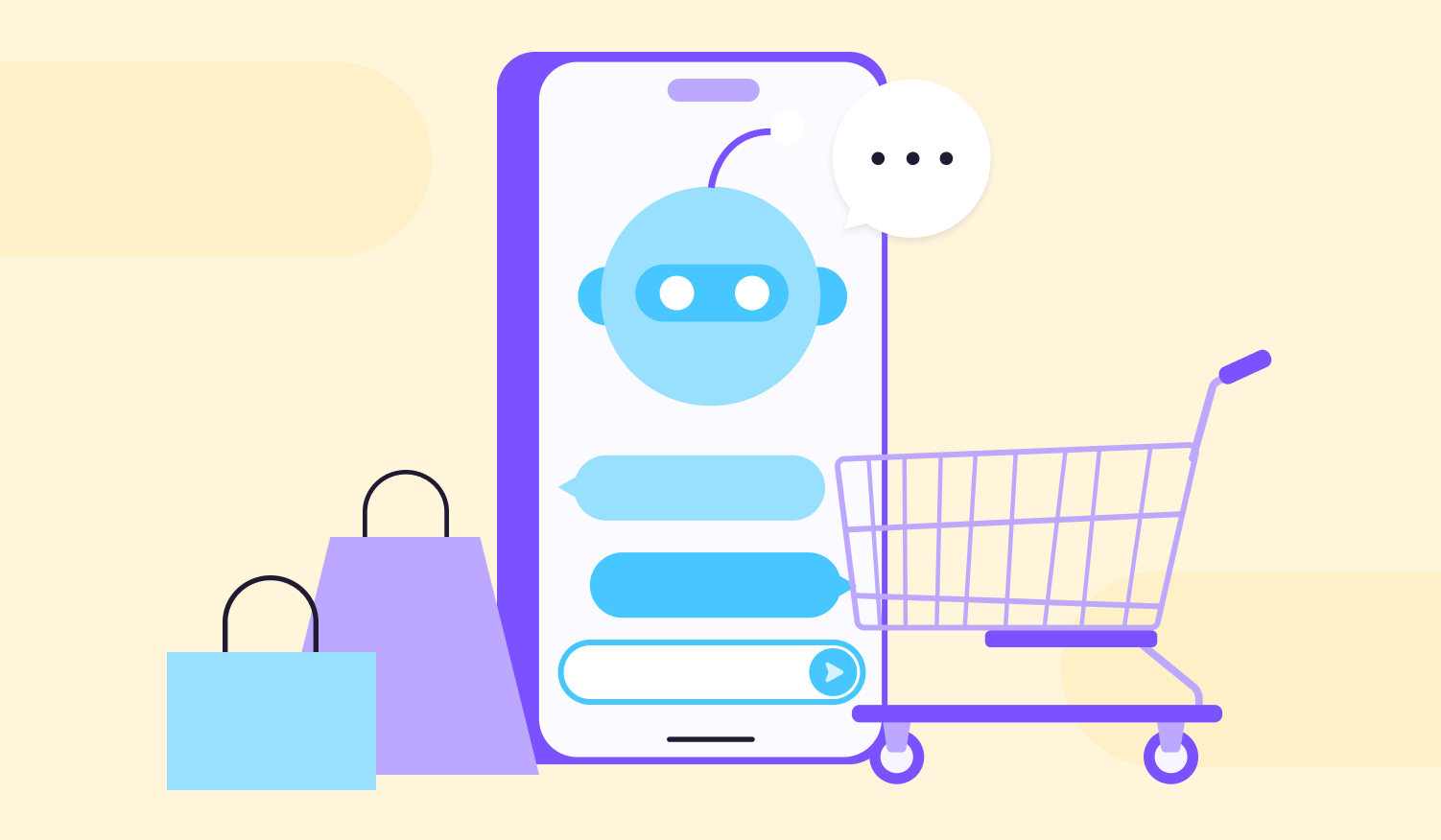


Think others should see this?
Go ahead and share it.